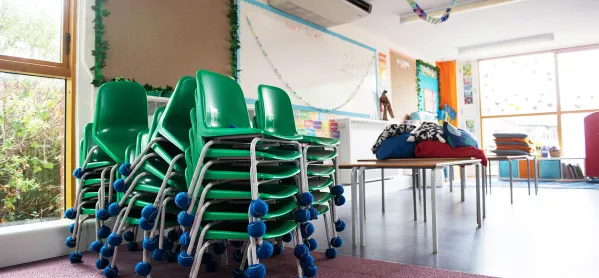The children’s commissioner for England has warned that the “crisis of attendance” is the “biggest problem” facing education policymakers and schools, but it is “becoming normalised” as new data shows absence levels have remained high since the pandemic.
Dame Rachel de Souza also called for a national campaign to fix attendance, warning that barriers such as pupils’ special educational needs (SEN) and anxiety are preventing them from returning to school.
It comes as government data reveals that the proportion of pupils who were persistently absent - missing 10 per cent or more of their sessions - across the year to date remains high at more than a fifth (22 per cent) of pupils.
Data released this morning by the Department for Education shows the absence rate across the current academic year to date was 27.1 per cent in secondary schools, 17.5 per cent in primary schools and 39 per cent in special schools.
The absence rate has remained at the same level this year as last, when 22.5 per cent of pupils were persistently absent across the 2021-22 academic year, despite government efforts to tackle the issue.
The rate was less than half current levels at 10.9 per cent in 2018-19, the last full academic year before the Covid-19 pandemic struck.
Speaking on Radio 4‘s Today programme this morning, Dame Rachel said: “I think we have got a crisis of attendance. I think schools are...doing a fantastic job...but I think we need to be far more systematic, attendance needs to be everyone’s problem.
“If I was the secretary of state for education, I would be looking at the attendance figures first thing on Monday morning and asking all my officials and making sure every professional was on it because this is the biggest problem facing us and it’s becoming normalised.”
Dame Rachel also said that schools should not be tackling the attendance crisis alone.
She said that hundreds and thousands of children had told her that they want to be in school, but are facing barriers to education: “I’ve been out and spoken to these children and spoken to hundreds and thousands of them and do you know what they tell me? They tell me they want to be in school but barriers like SEN, their anxiety and concerns, and just getting out the habit, is getting in the way.”
“When we look at what works, we see groups of schools with their local authorities using the systems to identify the children, making sure they’re picked up, but secondly finding out what’s really going on and getting them back into school. It costs time, it costs money but it’s got to be a national priority.”
Asked if she would want to see a national campaign on the importance of school attendance, Dame Rachel said: “Totally.”
Last month, Dame Rachel urged the government to “fulfil its commitment” to create a compulsory child-not-in-school register following the collapse of its planned Schools Bill legislation.
A government spokesperson said: “Attendance rates since the pandemic have improved and the vast majority of children are now in school and learning. But we remain focused on ensuring no child falls through the cracks.
“We are working with schools, trusts, governing bodies and local authorities to identify pupils who are at risk of becoming - or who are - persistently absent to support those children to return to regular and consistent education.”




